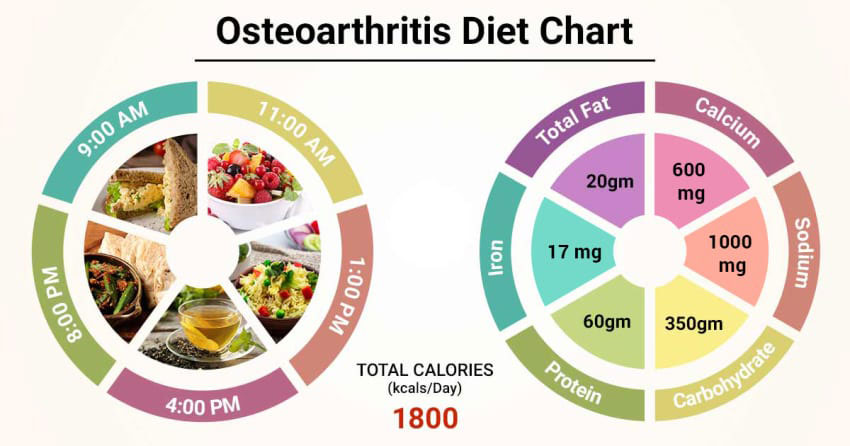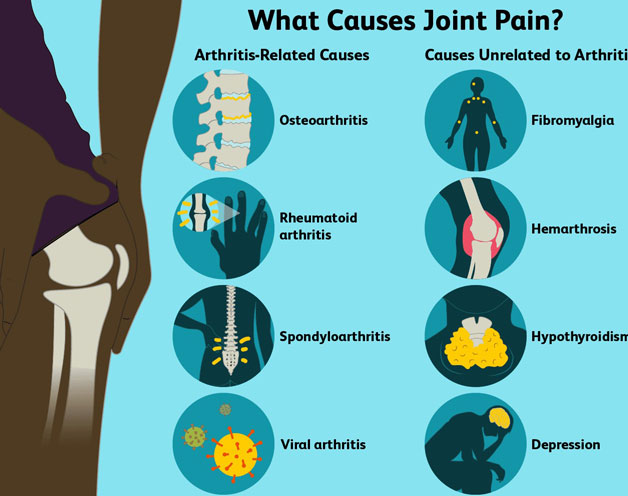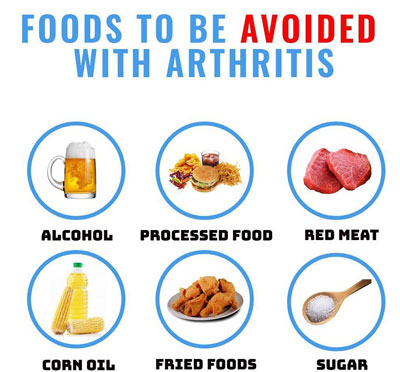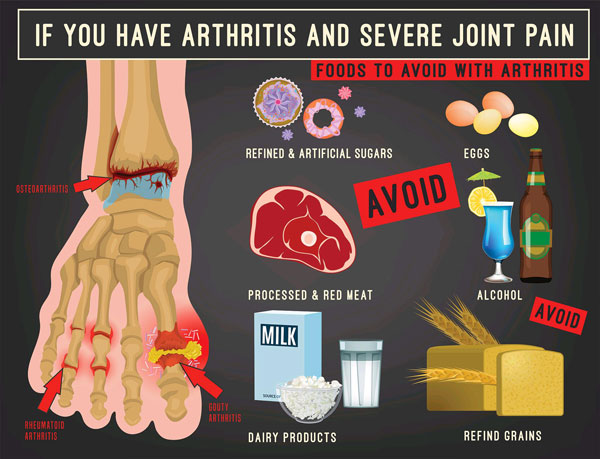DIET TO AVOID JOINT PAIN
“An ounce of prevention is worth a pound of cure”, is rightly said by Ben Franklin. Prevention of joint pain saves you from heaps of medicines and therapies. The orthopedic specialists mainly encourage patients to adopt dietary and exercise habits that would strengthen the bones and joints.
Your daily routine would have a huge impact on the health and longevity of your joints. For instance, consuming foods that increase bone density, strengthen connective tissue as well as reduce inflammation are helpful in preventing injuries and preserving your joints in the long run with active life.
Patients are usually curious about making lifestyle changes to reduce joint pain over medication. However, our orthopedic doctors are aware that it’s hard to change everything at once as patients tend to lose track of the change once they start feeling slightest of relief. Thus, considering changes in your diet is a great place to start.

JOINT PAIN
Joints are the junction where the bones meet and they allow the bones of your skeleton to move at ease. Joints would include: shoulders, hips, elbows and knees.
Feeling of discomfort, aches, and soreness in any of the body’s joints is often referred to as Joint pain. Arthritis is the most common cause for joint pain, however it can be the result of an illness or injury.
Two types of arthritis that usually cause joint pain are: osteoarthritis (OA) and rheumatoid arthritis (RA). Osteoarthritis is common among adults over age 40. This is a result of a breakdown of the cartilage serving as a cushion as well as shock absorber for the joints and it progresses slowly which have a tendency to affect joints like wrists, hands, hips or knees.
Whereas, Rheumatoid Arthritis affects more women than men. This could deform and debilitate the joints over time causing pain, inflammation, and fluid buildup in the affected joints as well as the body’s immune system attacking the membrane lining the joints.

Other problems that might cause joint pain are:
- Bursitis
- Lupus
- Gout
- Infectious diseases like mumps, influenza, and hepatitis
- Chondromalacia of the patella
- Tendinitis
- Cancer
- Fibromyalgia
- Osteoporosis
- Sarcoidosis
- Rickets
You would feel redness, swelling, tenderness, warmth in the affected joint along with limping, locking of the joint, loss of range of motion of the joint, stiffness and weakness.
It is important to see a doctor immediately if joint pain is accompanied with fever, unexplained weight loss and inability to walk normally.
Recent studies by researchers implies that dietary interventions, like eliminating certain foods and beverages, might help in reducing severity of symptoms in people with inflammatory arthritis and osteoarthritis, and improve their overall quality of life.

WHAT FOODS TO AVOID JOINT PAIN?
Our diet plays a vital role in controlling symptoms of our joint pain. Vegetables are a rich source of antioxidants and other nutrients that protect your body against cell damage and lower inflammation throughout the body, including inflammation in your joints. It is important to remember while choosing vegetables, the more color the better, and variety is key.
Food containing below should be avoided for joint pain:
Trans fats – They might trigger or worsen inflammation and these are harmful for your cardiovascular health. Trans fats partially hydrogenated vegetable oils are present in processed foods such as cookies, crackers, doughnuts and fast food.
Gluten – Gluten is a group of proteins present in wheat, barley, rye, and triticale (a cross between wheat and rye). Studies show that it increases inflammation and has proven that gluten-free diet eases arthritis symptoms. There is a chief connection between celiac disease and rheumatoid arthritis which might worsen due to gluten in food. It is proven that those suffering from rheumatoid arthritis should make good improvements on gluten-free diets.
Refined Carbs & White Sugar – Simple carbs and refined sugar are considered bad for health over the years. These are considered nutrient-free toxins which are of very little use for the body and they aggravate inflammation, and the food products that contain refined carbs or white sugar tend to come with other ingredients like trans fats. It can also cause obesity apart from inflammation, and other chronic diseases.
Processed & Fried Foods – Fried foods are overcooked and all or most of their nutrients are destroyed in the process of cooking. They might also contain carcinogens and lead to serious problems like cancer. They might also contain other ingredients that will cause inflammation by triggering the body’s defense mechanisms, and thus triggering the arthritic flare-up.
Processed and Red Meat – Diets rich in processed and red meats exhibit high levels of inflammatory markers such as interleukin-6 (IL-6), C-reactive protein (CRP), and homocysteine. These would trigger rheumatoid arthritis in most people consuming red or processed meat.
Alcohol – People suffering with axial spondyloarthritis, which is an inflammatory arthritis primarily affecting the spinal cord and sacroiliac (SI) joints. Alcohol intake would increase the spinal structural damage. Alcohol abuse would also increase the risk of gout attacks and osteoarthritis.

Advanced glycation end products (AGEs) – These are inflammatory compounds which accumulate in tissues, predominantly as someone ages. People with diseases like diabetes and Rheumatoid Arthritis often display increased AGE levels. Thus, reducing AGE levels might help reduce inflammation. Fat and sugar also increase AGE levels in the body. Some food processing methods as well as high temperature cooking might also increase the AGE levels in food.
Nightshades – Certain vegetables contain the compound solanine which is responsible for triggering inflammation in the joints causing pain. Nightshade vegetables include tomatoes, bell peppers, chili peppers, eggplant and potatoes.
Foods rich in purines – Purines aggravate gout as they increase the level of uric acid in the body. Purines are substances in foods that help the body to convert to uric acid. Uric acid once accumulated in the bloodstream, leading to a gout attack. The foods contain high amounts of purines such as red meat, organ meat like liver, beer and other alcohol, cured meats like ham, bacon or lunch meats and some seafood like mussels and scallops.
High salt – Salt causes inflammation which causes the joint pain. Foods high in salt such as shrimp, canned soup, pizza, certain cheeses, processed meats, and numerous other processed items have shown to aggravate conditions like arthritis. A low salt diet has proven to decrease the severity of joint pain compared to a high salt diet. The low salt diet causes less cartilage breakdown and bone destruction, as well as lower inflammatory markers in comparison to high salt diet.
Eliminating the above foods or reducing the intake of these foods will reduce the inflammation in the joints and in turn cause less pain in the joints. Also, increasing the intake of foods that decrease inflammation such as omega 3-fatty acids or fish oil, nuts and seeds, colorful fruits or chocolate help in reducing the pain.
OUTLOOK
If you have joint pain, a healthy diet along with alteration in lifestyle would help improve your symptoms. You should avoid or reduce intake of certain foods and beverages, such as highly processed foods, red meat, fried foods, and those rich in added sugars to keep joint pain at bay. Lifestyle factors such as your activity level, body weight, and smoking status are also vital to managing arthritis.
If you or anyone you know is suffering from joint pain, our expert providers at Specialty Care Clinics will take care of your health and help you recover.
Call us on (469) 545-9983 to book an appointment with our specialists.
